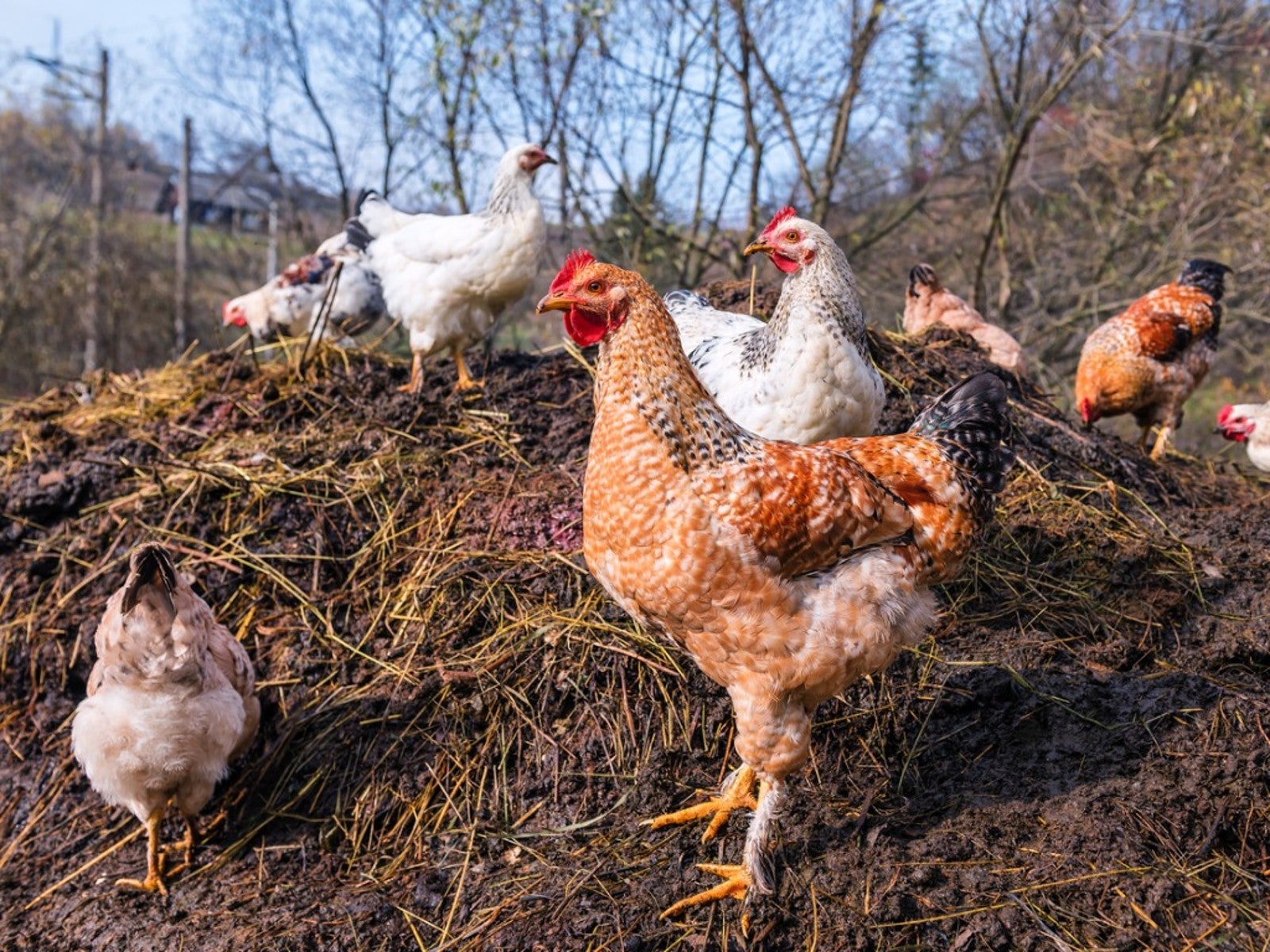How To Use Fresh Chicken Manure In The Garden


Keeping a flock of backyard chickens is another step toward a self-sufficient lifestyle. Yet as a gardener, you may be looking beyond the egg and meat benefits of chicken ownership and wondering how to make this activity more sustainable. One way is learning how to use chicken manure as fertilizer for your garden.
The Nutrient Content of Chicken Manure
Chicken manure is considered a complete fertilizer as it contains thirteen of the nutrients which plants require. In addition to supplying nitrogen (N), phosphorus (P), and potassium (K), it includes these macro and micronutrients:
- Calcium
- Sulfur
- Manganese
- Magnesium
- Copper
- Zinc
- Chlorine
- Boron
- Iron
- Molybdenum
Unfortunately, chicken manure also contains harmful pathogens. Safe methods of handling and applying chicken manure to the garden are essential to prevent food-borne illnesses.
How Long to Compost Chicken Manure
Composting chicken manure is one way to reduce harmful disease organisms. When a compost pile is properly maintained, heat is created as a by-product of the breakdown of organic materials by beneficial microbes. A temperature range between 145 and 160 degrees F. (63-71 C.) for a minimum of three consecutive days can reduce harmful pathogens while protecting beneficial microbes.
In addition to reducing disease-causing microorganisms, composting stabilizes the nutrients found in chicken manure and transforms them into chemical compounds which plants can utilize. Adding compost made from chicken litter to garden soil provides these additional benefits:
- Loosens heavy soils such as clay
- Increases the soil's ability to hold water
- Improves aeration
- Enhances drainage
- Reduces erosion
- Releases nutrients slowly
If you're wondering how long chicken manure needs to compost before spreading it on the garden, you may be disappointed by the answer. While a properly maintained chicken litter compost pile can complete the decomposition process in as little as five to six weeks, the recommendation is to wait three to four months.
How to Age Chicken Manure
It should be noted that even a properly maintained compost pile will have areas near the surface and sides that can't be maintained at 145 degrees F. (63 C.) for the three consecutive days needed to kill pathogens. Frequently turning the pile helps ensure these areas are composted, but there is no guarantee all the disease-producing organisms will be killed.
Sign up for the Gardening Know How newsletter today and receive a free copy of our e-book "How to Grow Delicious Tomatoes".
Allowing compost to cure creates unfavorable conditions that result in a gradual reduction of viable disease-producing organisms. An alternative method to composting manure is to spread it directly in the garden and let it age. The recommendation is to cure compost or age manure 120 days for vegetables that come in contact with the soil and 90 days for crops, like corn, which do not.
How and When to Apply Chicken Manure to the Garden
While cured compost can be spread on the garden and worked in three to four weeks before planting, it's advisable to spread fresh or raw chicken manure in the fall after all crops have been removed for the year. If you use a deep litter method, fall is also an ideal time to clean out an accumulation of soiled bedding and finish composting it in the garden.
Fresh or un-composted aged chicken manure can be spread on the garden at a rate of 14 pounds (6 kg.) per 100 square feet (9 sq. m.). Fresh chicken manure is high in ammonia, which evaporates quickly. To prevent this soluble form of nitrogen from being lost, it's advisable to till fresh manure into the soil within 12 hours of application.
Composted chicken manure can be spread at a rate of 44 pounds (20 kg.) per 100 square feet (9 sq. m.). As a general rule of thumb, a five-gallon bucket will hold approximately 25 pounds (11 kg.) of fresh manure or compost. Compost is more stable than fresh manure and doesn't need to be tilled in as quickly but incorporating it into the soil several weeks before planting ensures microbial activity won't interfere with seed germination.
Aged chicken manure or chicken manure compost can also be used around flowers and ornamentals where issues with food-borne illnesses are not a concern. However, fresh chicken manure should never be applied to side dress growing plants. Due to the high ammonia content, fresh manure is “hot” and will damage or kill the plants.

Laura Miller has been gardening all her life. Holding a degree in Biology, Nutrition, and Agriculture, Laura's area of expertise is vegetables, herbs, and all things edible. She lives in Ohio.